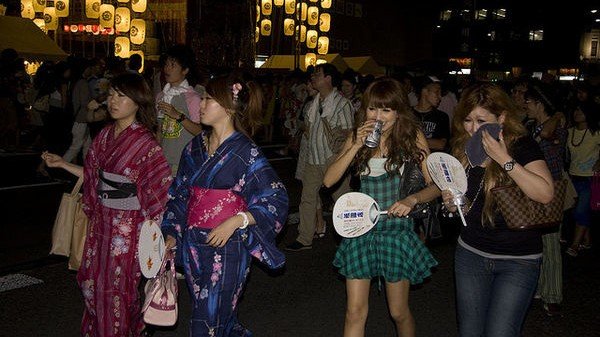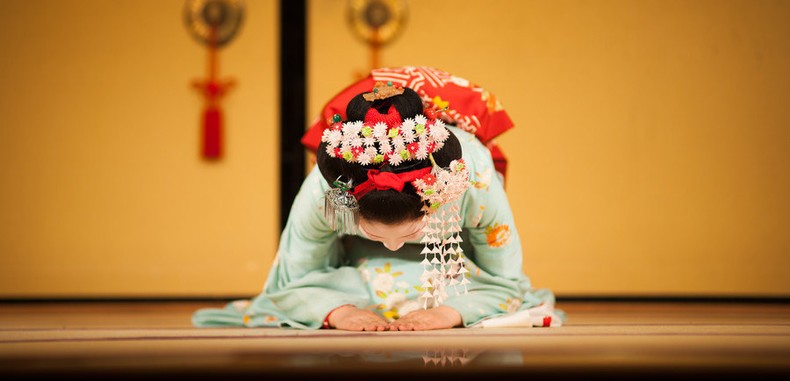A while ago we answered the difference between onegai and kudasai. In this article, we will answer the difference between sumimasen and gomennasai and when to use each of these words.
both words sumimasen (すみません) and gomennasai (ごめんなさい) can mean: I'm sorry. however, there are some differences between the two words.
On a basic level, sumimasen é apologize for something you have a “right” to do, like when you walk through a crowd or get the attention of a waiter in a restaurant. already the gomennasai is used when you do something inappropriate.
So when walking in a crowd you can speak sumimasen (excuse me), but if you step on someone's foot you say gomennasai (excuse).

Índice de Conteúdo
What does Sumimasen mean?
The Sumimasen it's like saying "excuse me," or a light apology, or when you ask a person on the street, when trying to do anything that might make someone else uncomfortable.
The sumimasen it's a little more formal than gomennasai, because it's a more sincere form. When you apologize to an Elder, it is common to say sumimasen. Older people tend to use sumimasen more than younger people. Both “gomennasai” and “sumimasen” are used when you make some mistakes or bother someone. “Sumimasen” is also used to express gratitude.
When you apologize to someone of a higher level than you, like your boss, it's best to use the sumimasen, because the gomennasai may seem more childish.
There are informal versions of the words sumimasen which are: すまん (suman) or すまない (sumanai), their use has the same meaning, but with a degree of causality.
Sumimasen it can also mean "Thank you" just like arigatou. You can use it in place of arigatou when someone does something for you, so you are apologizing for the inconvenience and thanking you.

What does Gomennasai mean?
The gomennasai it's a real apology, when you really do something wrong. But it is common among young people and children, and among friends and family. It cannot be used to express gratitude.
There are informal versions of the word like ごめんね (gomenne – casual) or ごめん (gomen – more casual). It is very common to use these versions among friends and family.
申し訳ありません (Mōshiwakearimasen) or 申し訳ございません (Mōshiwakegozaimasen) is a more formal version of gomennasai, used when we have made a very serious, unforgivable mistake, on important occasions, or when we are apologizing on behalf of several people or an organization. This apology is usually made in conjunction with a reverence.
I hope this article has cleared your doubts regarding these 2 similar words.





